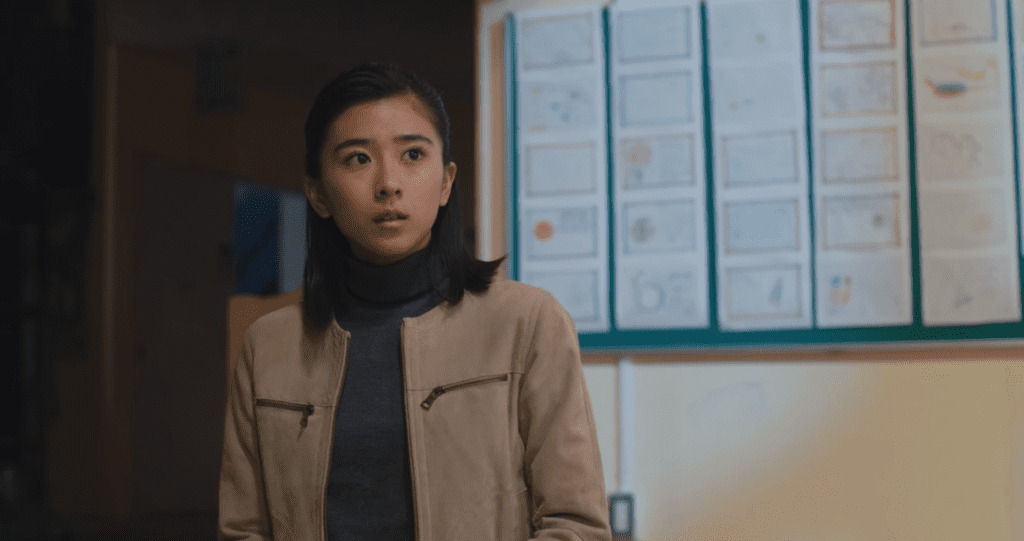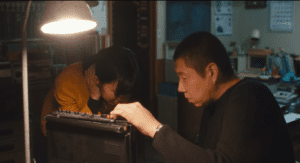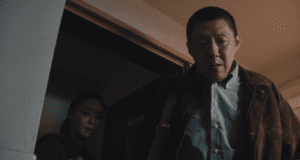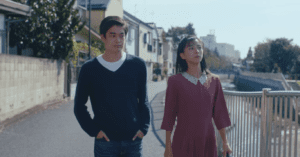Summary
Ju-On: Origins episode 4 contains a horrifying sequence or two and only the strong-stomached need apply, as its horrors remain disturbingly human, and its connections emerge as even deeper than first suspected.
This recap of Ju-On: Origins season 1, episode 4 contains spoilers. You can check out our thoughts on the previous episode by clicking these words.
Check out our spoiler-free season review.
Check out all our recaps in the episode archive.
Yasuo is asked some awkward questions at the beginning of Ju-On: Origins episode 4, and he doesn’t have any satisfactory answers. The questions, asked by the convicted child murderer, “M”, are about the nature of his work; why he chooses the stories he does, what his standard for horror worth recounting is. Yasuo’s nebulous response is that all of his relatives are dead, which by his own admission doesn’t suffice as an answer. But in a way, it does. “M” exhibits the same kind of morbid curiosity, explaining how he would read about horrific crimes in old newspapers and visit the sites. What’s his motive, his standard? It doesn’t matter, does it? We’re drawn to these things. If, as he explains, the same house was connected to many of them, and continued to appear, again and again, I’m not sure how much of a surprise that’d be in our cyclical culture.
“M” can’t remember the house’s address but recalls that the origin of its evil was a woman who fell pregnant there, who died and whose baby was lost. The entitlement of men to women’s bodies and babies is typified in a deranged extended sequence in which a husband, Keiichi, is told by his pregnant wife Chie that her baby isn’t his; that she has hated and resented every moment she has spent with him. Admittedly, she then tries to kill him, but after slashing his wife’s throat, Keiichi, knowing the child isn’t his, slices her belly open regardless and drags the wailing infant from inside. He carries it around in a bundle of rags until the child dies, at which point he buries it in a shallow, sodden grave in the yard of the murder house, at which point he’s invited inside to eat by a woman. At this point, he is, of course, deranged, but it is an unsubtle commentary on entitlement either way.
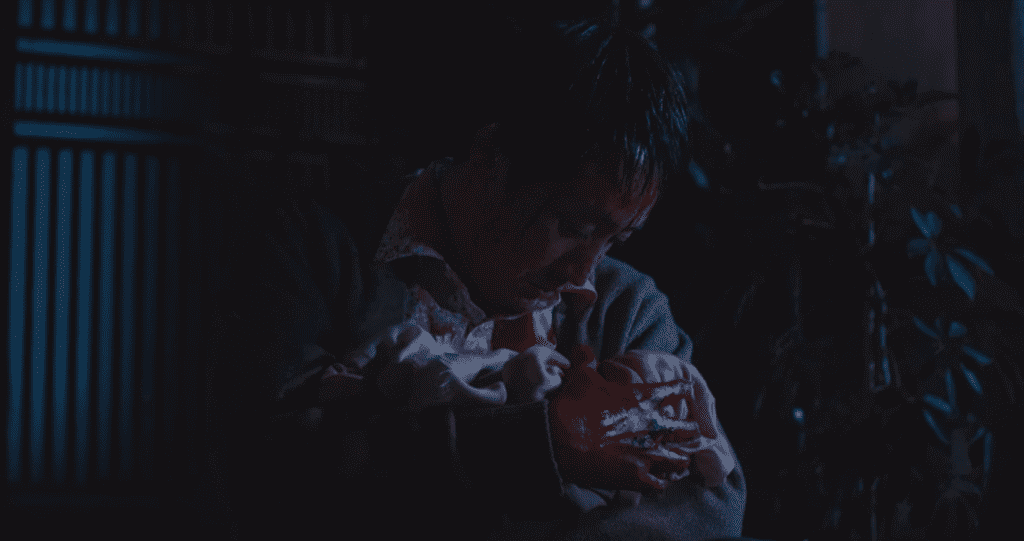
The violence attached to the house continues to proliferate in the media; news reports and papers that detail missing schoolgirls, teachers killing their students’ mothers, and husbands killing their own wives. Yasuo later asserts that the house has remained standing because the crimes that occur within it aren’t noteworthy and are easily forgotten, which seems a bizarre thing to say given current circumstances, but this is what allows new occupants to arrive and the cycle to continue. The property’s public attention also allows Yasuo to realize he himself lived there until he was five years old, and yet despite all his other relatives having died, he remains alive. Why?
When he is interrogated, Keiichi explains that he buried the child in the yard because “it belonged to that house”; here the idea of a haunted house is a stand-in for that male entitlement that set him off in the first place — a child must belong to someone. But this one doesn’t belong to him. Later, in his cell, he finds it eating his meal, and then it climbs up his body and into his mouth. Looks like the kid can make its own decisions.
Ju-On: Origins season 1, episode 4 ends with something of an inversion of its usual symbology, with Toshiki playing, in some sense, a guardian angel to Katsuji, instructing him to run away, presumably away from death and danger — the exact opposite of the young boy’s usual function in such stories. Admittedly Toshiki also sketches his mother as a black ghoul, so the creepiness is still there, but it’s refreshing to see how this series is flipping some longstanding iconography on its head. To what extent it will continue to do so across the final two episodes remains to be seen.

